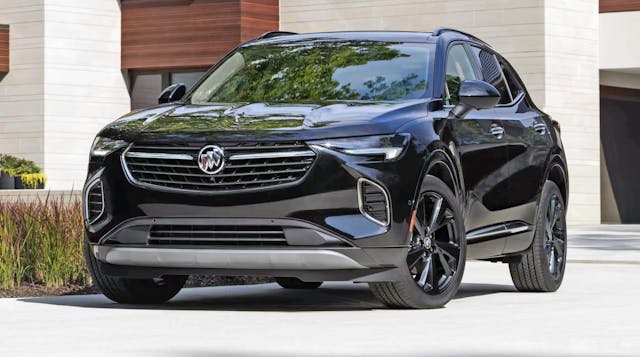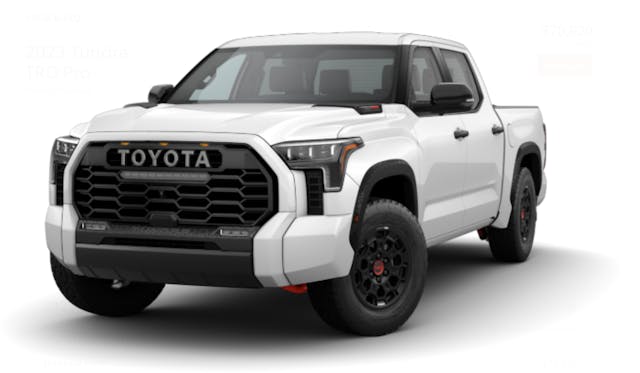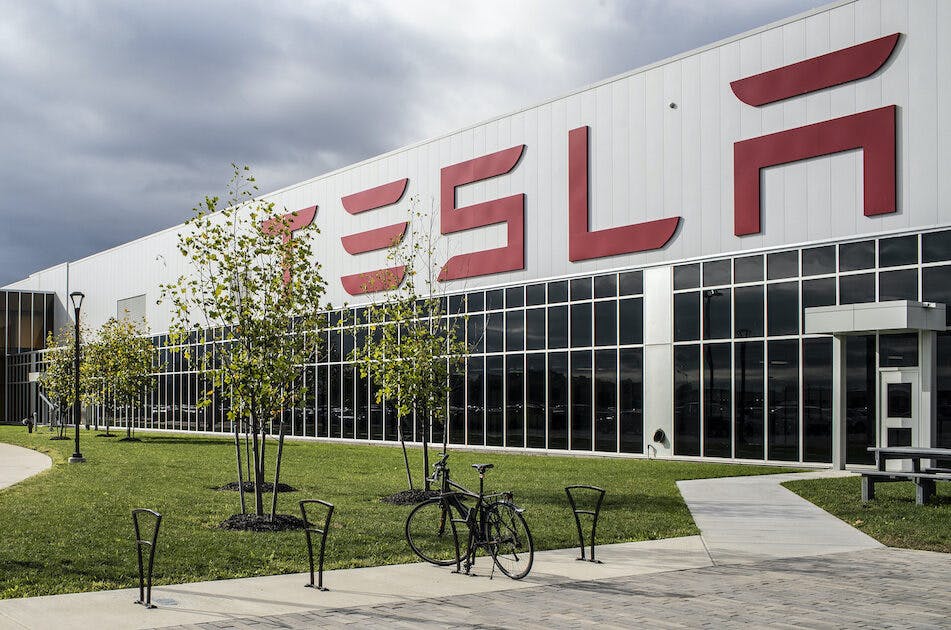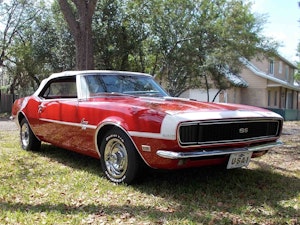Media | Articles
Piston Slap: Foreign or Domestic isn’t black and white

James writes:
Sajeev,
My friends and I have been having friendly debate about what constitutes a “domestic” vehicle. I think what makes a car foreign is not where it is built, but ultimately where the profits go. Consequently, a Honda Accord built in the USA is a foreign car because the profits go back to Japan. The problem is that I have a hard time seeing that Ford from Mexico as a fully domestic vehicle. Then there is Stellantis—a whole ’nother problem.
Are we too modern to be able to identify vehicles as purely foreign or domestic? Your answer might help settle this for us!
Sajeev answers:
This is both a simple and difficult question to answer, and I love it for that exact reason! The thing about determining the level of domestic pride we can gather from our vehicular purchase is that the measurements are going to be pretty subjective. Some ways really tug at the heartstrings, while others make sense in hard currency and cold facts.
But there’s another problem you haven’t considered: regional loyalty for a company supporting your city, county, state, etc. We have to slice this dicey question into several answers.
What if you live in Texas? (Or the South?)
While my only new vehicle purchase is a Ford Ranger (RIP Twin Cities assembly plant), I’m not oblivious to the fact that both Tesla and Toyota have set up shop in my home state. And the taxes they pay might help me at some point, though it’ll be in ways I can’t possibly fathom at the time of this writing. I’m not dying to get back into debt buy a new vehicle, but these two brands are a bit more appealing considering the locations of their factories and corporate offices.

And nothing pulls at a Texan’s heartstrings like a Toyota Tundra with the “Born in Texas, Built by Texans” sticker applied at the factory. (Presumably this applies to units headed to Gulf States Toyota and subsequently remain in Texas.) I know Toyota is doing a whole lot for my home state, but your statement about “where the profits go” is not lost on me.
About Domestic Content

I see this question as what percentage of my money goes to foreign lands, and what percentage stays stateside to be plowed back into U.S. operations. And that’s where the American Automobile Labeling Act comes into play. The details are painfully complex, as expected for just about any legislation from the federal government, but the big picture is paramount. The act’s mission is to:
“Aid potential purchasers in the selection of new passenger motor vehicles by providing them with information about the value of the U.S./Canadian and foreign parts content of each vehicle, the countries of origin of the engine and transmission, and the site of the vehicle’s final assembly.”
More to the point, this law isn’t the Feds jamming down a yes/no binary down our throats. Instead we are given the knowledge to draw our own conclusions.
Red, white, blue, and shades of gray
And the good folks at Cars.com took this data and made a handy list for us to digest. Sticking with the truck theme in my answer, the most American truck by content is the … drum roll please …

Actually no, the Honda Ridgeline has more American content than the Toyota Tundra. But I can’t tow a big ’ol bass boat (with even bigger flakes of metal in its paint job) with a car-based truck. This is Texas America, baby, and we want real American Japanese body-on-frame trucks for crying out loud!
All jokes aside, let’s consider the amount of American components in the Tundra and the unimaginable amounts of money Toyota is dumping into my home state’s economy. Doing so suggests a large chunk of one’s money stays in America: a story on Edmunds.com suggests “much of the revenue” stays stateside, citing the tax advantages in doing so.
About Corporate Tax Burdens
I have some experience in the value of keeping corporate money in certain places for tax purposes. It’s all above board, though I’m no highfalutin’ finance whiz. But I do have an MBA, which, like, totally makes sense for an automotive journalist.
So anyway, my time in automotive retail included paying for digital marketing services rendered for our UK operations. At the time, giving the UK folks a freebie actually lowered the company’s tax burden. That’s what the CFO told me, so armed with his endorsement I boldly raised our team’s marketing expenses. My UK counterparts absolutely loved talking to your boy Sajeev because he did everything they asked for free, and those same international tax considerations likely have a similar benefit to the likes of Toyota and Honda. And, as James mentioned, the same is likely true for Chrysler/Stellantis these days.
Seeing the forest for the trees
The differentiation between foreign and domestic vehicles is as undefined as shades of gray. My advice is to find the best price first, so you can keep more of your U.S. dollars in your bank. Let them do wonderful things with your money instead, am I right?
Anyway, let’s press on with American trucks. Doing so means you might buy from a Detroit-based automaker, because they regularly offer more significant discounts. Right now all buyers of the Ford F-150 can get $2250 and low 3.9 percent APR financing. I checked Toyota’s website and they only have conditional offers for the Tundra ($500 cash back for recent college grads and military personnel). While the Ford isn’t “as American” as a Toyota in terms of parts content, giving Toyota less of your money suggests you may be keeping more in America.
Buying the cheaper vehicle almost equates to “volunteering” to ease an automaker’s tax burden by not giving them money in the first place. This is far from a detailed analysis, so consult your nearest corporate tax analyst if you wish to see which OEM, which state, and which country of corporate origin suits your needs. And with that, let’s kick it over to the Hagerty Community.
Did I do a good job not answering James’ question? Tell us what you think in the comments.
Have a question you’d like answered on Piston Slap? Send your queries to pistonslap@hagerty.com—give us as much detail as possible so we can help! Keep in mind this is a weekly column, so if you need an expedited answer, please tell me in your email.
***
Marketplace
Buy and sell classics with confidence
Check out the Hagerty Media homepage so you don’t miss a single story, or better yet, bookmark it. To get our best stories delivered right to your inbox, subscribe to our newsletters.

















Last Canadian domestic with any volume that I am aware of was the last couple of years of Studebaker when they kept making cars in Hamilton and no where else…
Yet, this debate here has always been the American big 3 as domestic, everything else as foreign. Which on one had is fair because of the Auto Pact.
Meanwhile, the only auto plant within 3 hours of where I live is Honda. But they don’t make everything at that plant.
If it matters to you, shop (most) local for production of the type of vehicle you want. So that may change depending for auto category. The local labor rate does far more locally than any federal-level corporate taxes I would suggest.
Tesla it would be interesting to really dig into how much is made vs. assembled in USA. Lot of optics and pulled curtains with that company as far as I can tell.
From an enthusiast perspective… defining vehicles by the market they were sold in seems far more interesting (i.e., the Australian and JDM -Japanese Domestic Market) offerings are quite different than Canada. Granted Canada gets the minimum/limited options in most situations. USA doesn’t get all the cool stuff either though.
Best non-answer I’ve seen in weeks. But I think that’s because there isn’t really an answer – or at least a definitive one – anymore. The globalism and foreign investment strategies of all the developed countries nowadays makes things so blurred that you can draw lines anywhere you want and the exceptions will still outweigh the rules. Shortly stated: there is no such thing as “American vs. Foreign” automobiles anymore. I’m not here to say whether that’s a good thing or a bad thing, it just is…
I think you are right, thanks to Globalism in the auto sector, being patriotic about a vehicle’s origin is complicated at best, and pointless at worst.
Great question, great answer. Certainly it was more easily answered in 1960 or 1970….
Probably just as easy in the 1990s, as the “imports” hadn’t fully set up shop back then. Thank you for reading.
Actually Volkswagen was building in Pennsylvania by 1977.
I had forgotten about that one!
When i started my career in the car business, there were 7 US car companies, none of them a division of a foreign company (Besides the big three, there were American Motors, Checker, Studebaker and Willys).
Now there are 2, plus a division of a French company.
When I spend money on a new car, I like to think about how many Americans my money puts to work. Which is a little difficult to determine, because the Feds lump US and Canadians together, as if they are the same country. Canadians, i am told, kind of resent this. Being an American, I like to put Americans to work.
Canadians that “resent” the auto pact and being counted “as Americans” are missing the big picture I would suggest.
*saying this as a Canadian.
Yeah, last I looked, Canada is still part of North America, as is the U.S. – and in fact, there are even MORE countries in Central and South America who are also (rightly or wrongly) recognized in honor of Good Ol’ Mr. Vespucci. So, we here in the states have no more right to the term “American” as anyone north – or SOUTH – of us who fit in that geographic area (basically, the Western Hemisphere). We tend to talk like we are the only nation entitled to be called Americans (but some other countries foster that also, talking about “the Americans” when they are referring only to the USA).
Having said that, I can certainly understand why people from their own sovereign nations might resent being lumped in with the United States as if they didn’t really exist as separate entities. We have our national pride, why shouldn’t they be allowed the same?
Mexico is part of North America, but Mexican content isn’t mixed in with US and Canadian content.
My neighbor was making a big deal about his American made Toyota, then we opened the door and found it was made in Canada.
Remember that the people in the cubicles are workers too. We tend to only figure the factory workers and parts into these equations. If the big skyscraper is in the US, it is filled with cubicle workers that are also pumping money into the local economy, and it is where the majority of proceeds from the sale of the vehicle are likely ending up. I have seen reports that say around 5% of the cost of the vehicle is the assembly
I would argue that as long as “North America” is a thing, his Toyota IS “American made”! We just maybe need to adjust what we think of as “American” (see my comment above). We here in the U.S. seem to have co-opted the name AMERICA just because it’s part of our nation’s official title, but in the bigger picture, there are dozens of nations that are American, too. Now, whether or not they like that fact or wish to be recognized as such is certainly up for debate and NOMDB, but regardless, according to my maps, it’s so!
What matters anymore is where the company is based and where the money comes back to.
As labor cost climb less and less will be done here. They just can no longer price cars to be affordable now and yet the unions want more and more.
While the companies may be making money much of it is being poured into forced EV programs few want.
It used to be everyone could afford a new car even a kid working at a gas station in high school could buy a new car if he saved his money. Today buying new for many is a pipe dream.
All MFGs are not on the same footing with how plant labor is set up. Some are non union, some in countries where wages are lower and the cost of living is much lower.
Also you have the heritage factor where companies like Hyundai in America have very few old people and nearly no retired employees on legacy costs.
There are many factors in play but too few are understood or explained to the public as a whole.
My personal opinion (doomer-ish though it may be) is that patriotism as an automotive buying criteria is pointless in 2023. Globalism isn’t coming. It’s already here. In fact, it’s been here for years.
You may feel national pride that you bought an F-150 rather than a Tundra, because Ford’s HQ is in Detroit and you think your money stays here in the USA. But Ford doesn’t only do business in the United States anymore than Toyota only does business in Japan. If you tried to tell me every dime of R&D money (and engineering know-how) that went into building your F-150 was 100% sourced from within the United States borders, I’d guffaw heartily and sit you down for a somber lecture in how the modern world works.
And it gets more complicated from there on an individual level.
I bought a Mustang (which is built in Flat Rock) in 2017, brand new through Ford Credit, and the entire first two years of payments that went in FoMoCo’s coffers toward the principal and interest of that purchase came from profits earned from my employment at a Subaru dealership. Money made from selling an “import” product paid for a “domestic” product.
I put “import” and “domestic” in quotation marks because two of Subaru’s most popular models are manufactured in Indiana, and my Mustang is an EcoBoost, which means it has an engine block heavily derived from the old Mazda MZR design.
Furthermore stiil, I have a JDM Subaru, right-hand-drive and everything, which has been in my possession in the USA for over 13 years now. Despite the fact that it started life in Japan with zero intention on the part of the manufacturer for it to contribute to the American economy and infrastructure, It has paid more gasoline taxes, tire taxes, and registration fees during its time here than a not-insignificant number of brand-new cars sold in the USA ever do during their entire lifespans.
The cold, hard truth is that for any large publicly-traded corporation (including automakers) to survive today, they must make money wherever there is money to be made, country borders be damned, and I think buying any consumer good in the 21st century with the impression your money is going to stay within the borders of your country is frankly foolish. So buy what you want, buy what works for you, and buy what is built with quality. There’s no reward (to you or anyone else) anymore for buying in the interest of patriotism.
Look you can hardly by content or even where it was built as these thing vary so much. I had a Mexican Built Chevy that had an engine from TN a Transmission from Ohio and a Italian horn made in AZ but the car was assembles in MX.
Due to suppliers and plants they can be just about any place.
Much of this is more about the country of origin of the MFG corporation.
But even that can be difficult as FCA was an American Italian company that was based in England.
The way I see it is if we had a world conflict like WW2 what companies would support what country? MFG base is home land security that many forget about. We have lost tons of MFG in this country and I doubt we could pull off anything close to what we did in WW2.
As for Canadian they are pretty much American produced. Most are American brands and many are there to count as an import to save on the CAFE averages.
I used to have fun with F-body guys telling me their Camaro was more american than my Mitsubishi built in Illinois. Well Illinois is a state in the USA but Quebec is not and they speak French buddy so I’m more american than you! :^)
I honestly don’t care as I buy what I buy but I have owned Japanese cars made in Illinois and Indiana so either way an american was paid to work and live here. Who cares.
Nationalism (and hence patriotism) is tribalism and is as destructive to humanity as is racism. Each of us is and individual and should be judged by our actions and character, not which side of the tracks we come from.
What you call nationalism and tribalism, I call community.
(It would be nice if there were a small window of time in which we could correct the errors the spell chick has inserted into our posts.)
I also miss the ability to click on a user name whether it be my own or another’s, and see if there are any follow up comments. Notifications of follow up comments are also missed.
I enjoyed the article Sajeev.
You folks that buy the new cars can worry about where it was made or who got the profits. I’ll still be here, bottom-feeding, buying them when they’re done depreciating in 25 or more years and will use the Chinese parts from Rock Auto to keep them on the road a little longer.
Glad you liked it, and I am with you. Sometimes I wish I could get better quality used parts…but sometimes every brand uses the same parts from the same factory.